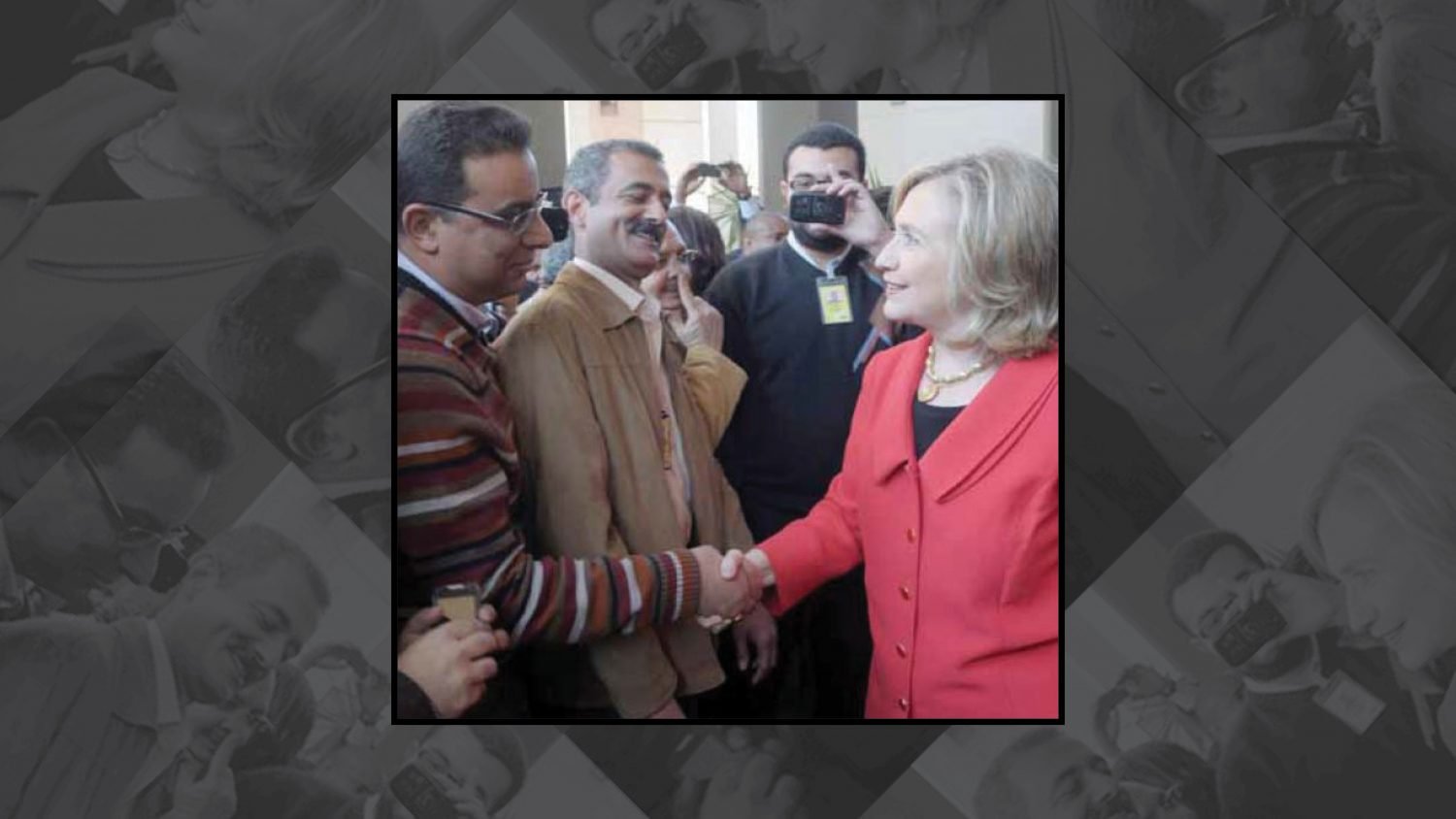#FlashbackFriday: 12 Years Ago, a Cairo Exchange Pressed on During a Revolution

On Jan. 25, 2011—12 years ago this week—protests against Egyptian President Hosni Mubarak’s regime broke out in Egypt, where the streets of downtown Cairo were filled with thousands of protesters. Mass arrests, injuries and a few deaths occurred during the protest.
Two associates from the Kaiserlautern Military Community Center at Ramstein Air Base in Germany were helping with inventory the Exchange’s store in the U.S. Embassy, just steps away from the protests. About 200 people sought refuge in the embassy. Winds blew tear gas over the building, but no injuries were reported.
Sherif Ibrahim, who managed the Exchange store in the embassy, and his team worked around the clock to keep the store open—and to provide food to people seeking refuge in the embassy. They also made sure the KMCC associates were safe while looting, fires and overwhelming noise were occurring outside.
Then-U.S. Secretary of State Hillary Clinton congratulated Ibrahim for his team’s work in supporting embassy operations.

Then-U.S. Secretary of State Hillary Clinton congratulates Sherif Ibrahim, general manager of the U.S. Embassy Exchange in Cairo, for his team’s work in supporting embassy operations during the Egyptian Revolution in 2011.
According to his LinkedIn page, Ibrahim joined the Exchange in October 2006 as the embassy store GM, a position he held until April 2012, when he moved to the States to work at the Carlisle Barracks Exchange in the Harrisburg, Pennsylvania, area. He left the organization in July 2015.
The Exchange recently marked 80 years of support in the Middle East and Southwest Asia. Cairo was also the site of the Middle East’s first documented PX, which opened Nov. 22, 1942. A month later, a PX opened in the Iranian desert to serve the first U.S. forces deployed to Iran during World War II. It was austere in more than just location: For its first eight months, it had no refrigeration, meaning no cold drinks or fresh meat.
The Exchange still operates a store at the Cairo embassy, as well as more than a dozen stores in the Southwest Asia region encompassing Jordan, Iraq, Kuwait, Qatar, United Arab Emirates and Saudi Arabia.
Sources: Exchange Post archives, Exchange history Flickr, Encyclopedia Britannica (Britannica.com)

